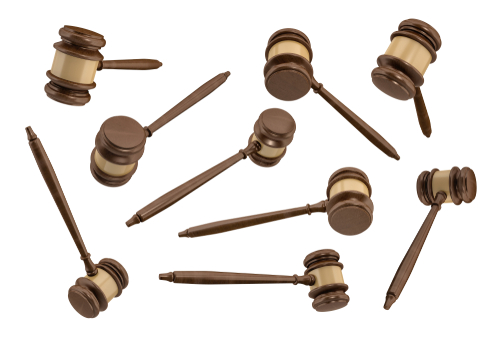
Earlier this week, the Federal Circuit granted Meril Life Sciences safe passage out of the infringement storm — otherwise known as Edwards Lifesciences — continuing to chase it (at least for now). More specifically, a divided panel of the Federal Circuit issued an opinion affirming the Northern District of California’s grant of summary judgment to Meril Life Sciences based on the finding that the importation of two heart valve systems fell within the safe harbor provision of 35 U.S.C. § 271(e).
The Back Story
The dispute between Indian-based Meril Life Sciences and Edwards Lifesciences Corporation and Edwards Lifesciences, LLC (collectively Edwards) started almost five years ago in late fall 2019. The case involved patents owned by Edwards relating to artificial heart valves using in treating patients with aortic stenosis. While we focus here on only the patent infringement aspect of the parties’ dispute, Edwards also accused its competitor Meril Life Sciences of falsely advertising the safety and efficacy of the Myval™ transcatheter heart valve and misrepresenting clinical trial results.
Meril imported heart valves into the United States on two separate occasions. The first importation occurred in January 2017 to allow the University of Washington to conduct pre-clinical investigations using the heart valve. The second importation occurred in September 2019 when a Meril employee brought two heart valves with him on a flight to the U.S. for an industry conference held in San Francisco. The two samples were kept in a bag with the following declaration:
This is to inform you that the demo samples carried by Mr. Nilay Lad is for the demonstration purpose only. It is consist [sic] of Demo samples of Medical devices. They have no commercial value & hence it is not used for any sales purpose. The demo samples are NON-STERILE. NOT FOR HUMAN USE. NOT FOR SALE. NOT APPROVED FOR SALE IN UNITED STATES. FOR DEMO PURPOSE ONLY AT TCT 2019, SAN FRANCISCO.
The heart valves never left the bag once arriving in San Francisco and left the U.S. shortly thereafter to visit Europe with a second Meril employee.
When Edwards brought suit about a month after the second importation, Meril took the position that the importations were covered by the safe harbor provision of 35 U.S.C. § 271(e)(1), which provides:
It shall not be an act of infringement to make, use, offer to sell, or sell within the United States or import into the United States a patented invention . . . solely for uses reasonably related to the development and submission of information under a Federal law which regulates the manufacture, use, or sale of drugs or veterinary biological products.
More specifically, Meril argued that it never displayed the heart valve at the San Francisco conference, and that both importations were reasonably related to the development of eventual Food and Drug Administration submissions.
The district court granted summary judgment of non-infringement in favor of Meril finding that Meril’s importations fell within the safe harbor provision § 271(e)(1) and thus were not infringing acts. In doing so, the district court rejected Edwards’ arguments that Meril’s activities were for a commercial purpose. It instead determined that Meril’s activities (including preclinical studies) were all reasonably related to developing information for eventual submission to the U.S. Food and Drug Administration (FDA) and, as such, fell within the safe harbor regardless of the alleged purpose of those activities.
The Appeal
Edwards appealed, but only with respect to the second importation. The question before the panel was:
whether 35 U.S.C. § 271(e)(1)’s safe harbor applies when undisputed evidence shows Meril’s importation of two demonstration samples of its transcatheter heart valves to a medical conference was reasonably related to recruiting investigators for a clinical trial to support FDA approval.
The Federal Circuit panel held that safe harbor does apply. The majority explained that if Meril had displayed the valve at the conference, such demonstration would have been covered by the safe harbor. Likewise, even though Meril ultimately did not display the valve at the conference, any importation of the valve for such demonstration would fall within the safe harbor. In addition, since at the time of the conference Meril had taken noteworthy steps towards obtaining FDA approval, Meril’s importation of the valve to the conference was reasonably related to the submission of information to the FDA (including educating investigators at the conference about the valve).
The Key Takeaways
Section 271(e)(1) is intended to allow competitors, before the expiration of a patent, to engage in what might otherwise be considered an infringing activity if the use is reasonably related to obtaining regulatory approval. In this aspect, determining whether alleged infringing acts fall under 35 U.S.C. § 271(e)(1)’s safe harbor focuses on acts or uses and not on purposes, intent, or motive. In fact, safe harbor shields conduct regardless of the phase of research, and even if the information is never ultimately submitted to the FDA as part of an approval application. Moreover, intent is irrelevant in determining whether an alleged infringing act is protected by the safe harbor. In other words, the why or how is not important. Rather, the relevant inquiry under 35 U.S.C. § 271(e)(1)’s safe harbor is whether the act or use was reasonably related to submitting information to the FDA. In short, if an otherwise infringing act is reasonably related to FDA approval, the safe harbor applies (regardless of the purpose behind the use).
Meril may have won this round, but Edwards’ pulse is still strong. Indeed, the dispute between Edwards Lifesciences and Meril Life Sciences spans numerous jurisdictions and numerous patents. Moreover, in his dissent, U.S. Circuit Judge Alan D. Lourie agreed that the majority followed Federal Circuit precedent in reaching its decision but opined that the full circuit court should overturn that precedent.

Source link











